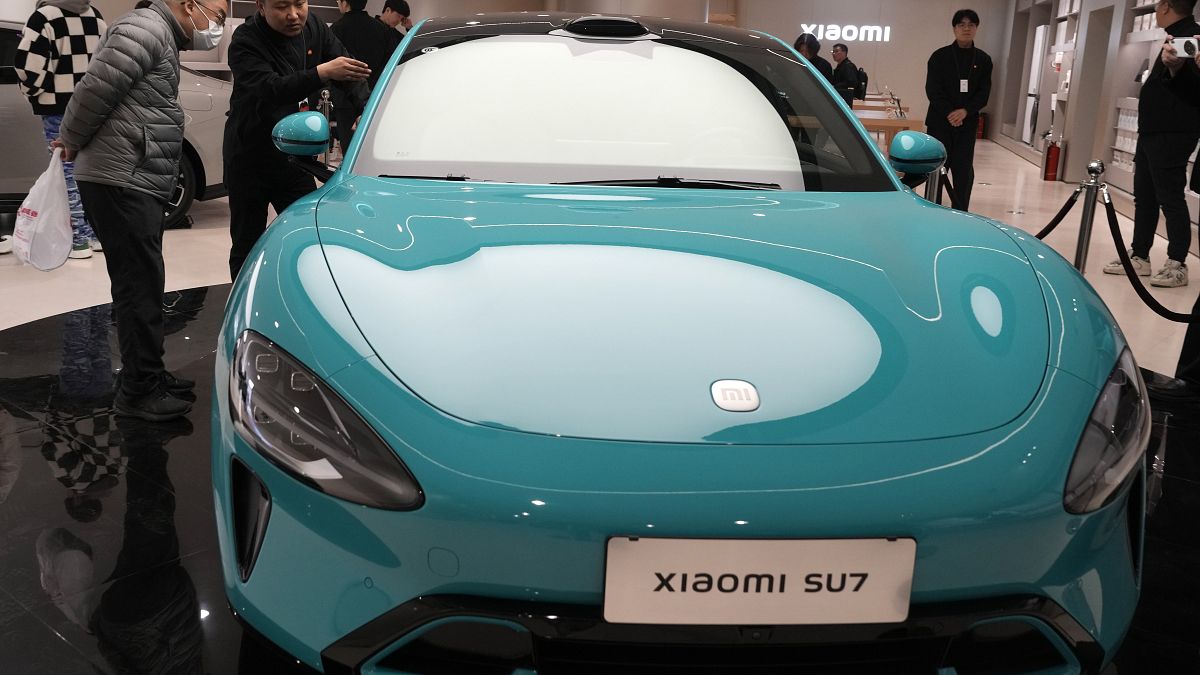Xiaomi takes aim at Tesla in Chinese auto market launching $29,870 new sporty electric car SU7. This new car with styling cues drawn from Porsche and priced below Tesla’s Model 3, highlighting the stiff competition from new entrants in an already crowded EV market in China.
On Thursday during the two-hour long event, Xiaomi CEO and founder Lei Jun told a packed room whose attendees including the bosses of Chinese EV makers Nio and Xpeng that the standard SU7 EV model will be priced at 215,900 yuan ($29,872.02), while the Pro and Max versions will cost 245,900 yuan and 299,900 yuan respectively.
“It’s 30,000 (yuan) cheaper than the Model 3,” he said. Tesla’s Model 3 starts at 245,900 yuan in China. He also said many of the capabilities of the SU7, which has drawn comparisons with Porsche’s Taycan and Panamera models, surpassed that of Tesla’s and Porsche’s. For example, its minimum range of 700 km beat Tesla Model 3’s 567km, Lei said.

The launch marks the realization of Xiaomi’s founder’s ambition, declared in 2021, to venture into the electric vehicle market. He committed a substantial $10 billion investment towards the company’s automotive division, considering it his final significant entrepreneurial endeavor.
The renowned company, recognized for its smartphones and diverse array of budget-friendly appliances, commenced SU7 orders at 10 p.m. Beijing time (1400 GMT), announcing an impressive uptake of 50,000 orders within the initial 27 minutes.
deliveries for the Standard and Max models are slated to commence in late April, with the Pro models to ensue by the conclusion of May.
Read more: PriyoShop Recognized as Top 26 Startup in ECHELON Top 100 APAC
Lei also said that the shift from electronics to car manufacturing had not been easy. “In the three years of developing this car, my biggest realization is that making cars is extremely difficult. Even a giant like Apple gave up on it,” Lei said. “So today, every person who is still persevering in making cars is a hero of our time.”
The SU7 will go on sale in 211 stores across 39 Chinese cities by end of this year, he added. But Xiaomi has not said whether it has any plans to sell the car abroad.
Analysts have been split on whether Xiaomi’s car project will succeed. Some say it is a natural extension for the company, whose rice cookers, air purifiers and other electronics are ubiquitous in Chinese homes. But the SU7 marks a departure from the company’s image as an affordable brand.
Read more: Rupayan City appointed Sakib Al Hasan as Brand Ambassador
“The current market environment is quite challenging for newcomers with the top 10 players continuously expanding their market share,” said Gavekal Dragonomics analyst Ernan Cui.
“If Xiaomi can’t sell at scale in a short time, it’s facing the risk of being a profit dragger for the company for longer.”
Working in Xiaomi’s favor, however, is revenue generated by other businesses, said Le of Sino Auto Insights.
The SU7 uses the company’s self-developed Hyper OS as the operating system that connects EV users to its other devices, including smartphones.












